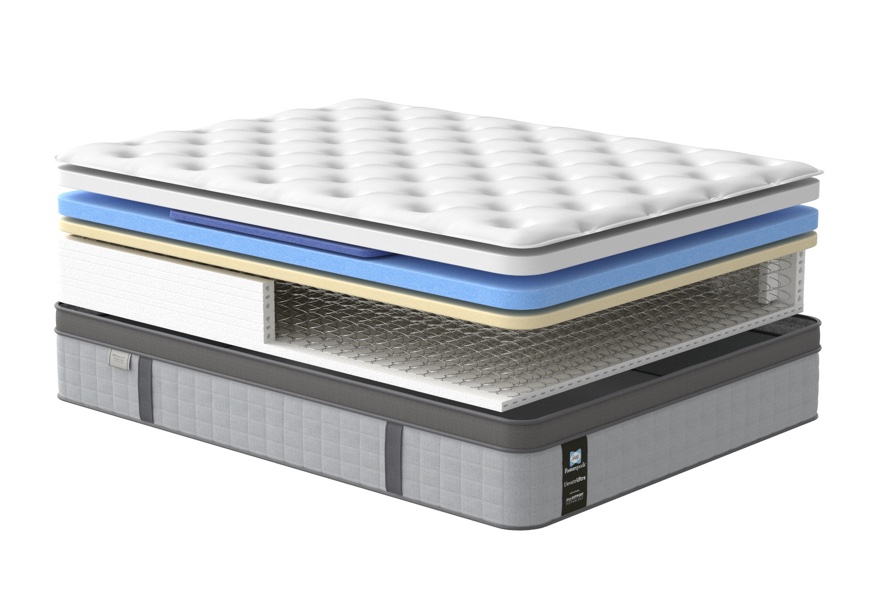Published Friday 5thDecember 2025
The festive season is officially here, a time to slow down, cosy up and indulge in the small moments that make winter feel special. And because great sleep is one of the most meaningful gifts you can give yourself we’re excited to unveil Sealy Wrapped, our 12-day Christmas giveaway, designed to bring comfort, calm and joy to your nights.
From Friday 12th December through to Tuesday 23rd December, we’ll be revealing a new prize each evening, each one thoughtfully selected to help you sleep better, relax deeper, and enjoy the comfort you deserve during the busiest time of the year.
Think:
- Premium sleep accessories to level up your bedtime routine
- Luxury comforts to make your bedroom feel cosy and calm
- Thoughtful winter wellness treats to help you unwind
- And perhaps even something from Sealy UK that transforms your night’s sleep (hint, hint…)
Each prize is chosen with one purpose in mind: to make bedtime feel better.
How To Enter
Entering is as simple as settling into bed:
1. Follow us on Instagram and/or Facebook
You must be following to be eligible to win
2.Watch out for our daily posts between 12th–23rd December
3.Follow the instructions in each post to enter that day’s draw
Each day is a fresh prize and a fresh chance to win – and yes, you’re welcome to enter more than once.
This is your nightly moment to unwrap a little comfort and joy.
A Little Festive Sweetener 🎁
And because Christmas is all about sharing joy, we’re adding a little extra magic into every giveaway.
If you’d like to gift a friend or loved one an entry, simply:
- Tag them in the comments, and
- Encourage them to follow us on Instagram or Facebook
Once they follow, they’ll automatically receive their own entry into that day’s draw – giving both of you the chance to win something special.
It’s a simple, thoughtful way to share a little festive comfort with someone who deserves it.
Whether it’s a friend who’s exhausted from hosting, a loved one who needs a pick-me-up, or someone who simply loves cosy nights at home, this is your chance to brighten their December.
One tag, one follow, one entry.
One small gesture, two chances to win.
Winners, Contact & Claiming Prizes
Each evening, one winner will be selected at random.
Winners will be notified via direct message, with easy instructions on how to claim their prize.
No forms.
No fuss.
Just festive treats and sleep-supporting surprises.
Why We’re Doing This
The festive season may be magical, but it can also be exhausting – late nights, early mornings, hectic diaries, winter colds, endless to-do lists, and not enough moments to rest.
Sleep is often the first thing we sacrifice, even though it’s the very thing that helps us show up as our best selves.
So this year, we want to help you embrace:
- Cosy winter evenings
- Better sleep habits
- Relaxation, comfort and calm
- And moments of luxury you can feel
Because investing in better sleep isn’t indulgent – it’s essential.
Join Us & Unwrap Better Sleep This Christmas
Whether you’re dreaming of a bedroom refresh, craving a winter wellness boost, or simply want something to look forward to each night, we’d love for you to get involved.
Follow us, tag a friend, and keep an eye out for the first reveal on Friday 12th December.
This December, let’s celebrate the sleep we all deserve
comfort you can feel, support you can trust, and nights that truly restore you.
Follow Us to Enter:
Instagram: @sealyuk
Facebook: Sealy UK & Ireland




